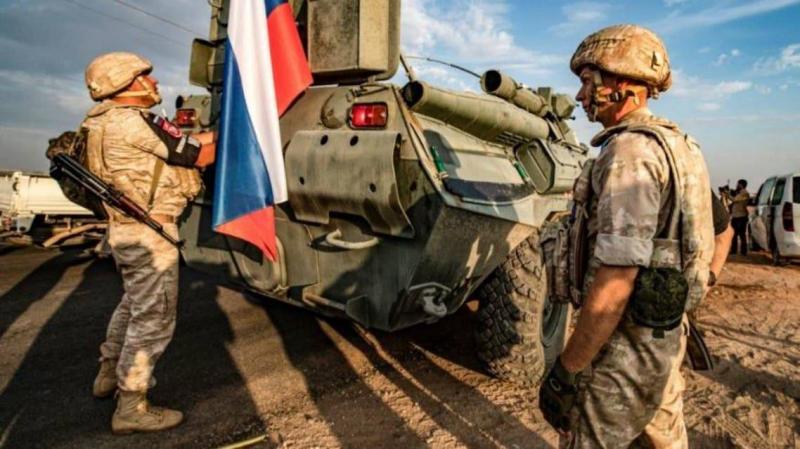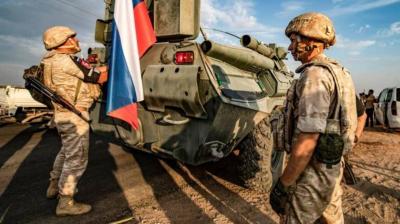Several sources reported that Turkey has sent reinforcements to the last rebel-held pocket in northwest Syria as Russia ramped up its airstrikes there on Sunday, just three days before talks between Russian President Vladimir Putin and Turkish President Recep Tayyip Erdoğan.
Residents, opposition sources, and military sources stated that Russian aircraft bombed villages around the city of Afrin on Sunday, intensifying airstrikes on towns and villages controlled by Turkey-backed rebels, which had escalated over the past week. Opposition sources indicated that at least five fighters from a Turkey-supported faction were killed, and at least 12 civilians were injured when Russian planes dropped munitions from high altitudes, according to a network of observers who documented the sighting of fighter jets.
The Russian bombing campaign extended from the Jabal al-Zawiya area in Idlib province further northwest to the Afrin area near the Turkish border. The campaign was carried out from positions of the Syrian army with support from Iran-backed factions. Major Yusuf Hamoud, a spokesperson for the National Army, the main Turkey-supported opposition force, told Reuters, "The Russian escalation has intensified... now it has been a week, and the escalation started in Idlib and reached areas in northern Aleppo countryside."
This escalation comes ahead of a meeting between Erdoğan and Putin in the Russian city of Sochi next Wednesday to discuss an agreement reached last year that ended a Russian-led Syrian army offensive, causing the displacement of nearly a million people in Idlib, the largest displacement during the ten-year conflict in Syria.
Russian Foreign Minister Sergei Lavrov said in New York on Saturday that progress in implementing this agreement has been slow. The Russian news agency TASS reported that the summit will also discuss Ankara's commitment to ending the presence of militants whom Moscow blames for the violence.
The ceasefire brokered by Moscow and Ankara has bolstered significant gains made by the Syrian army and Iran-backed factions, but the large deployment of Turkish forces within Idlib province has halted further progress in the Russian-led offensive. More than four million people live in the densely populated opposition-held area in the northwest of the country. Among them, half a million reside in temporary tents along the Turkish border following consecutive Russian-led campaigns to reclaim territory controlled by the opposition.
In a sign of Turkey's resolve to deter any new efforts to recapture the stronghold, military leaders coordinating with the Turkish army indicated that Ankara has reinforced its presence in dozens of bases over the past two weeks, where thousands of soldiers are currently stationed. Hamoud added, "The Turkish deployment in Idlib is combat-ready. All military bases are fortified and convoys have entered recently, whether vehicles or fighters or equipment."
Military sources reported that a massive Turkish military convoy, carrying rocket launchers and tanks, crossed the border into Syria at night and was seen heading toward Jabal al-Zawiya, where Turkish bases are located. The Turkish army has carried out several operations since 2016 that have altered the course of the Syrian conflict in the north. Ankara has not provided a number for the troops deployed in Syria, but it is the largest contingent stationed outside the NATO member state and significantly larger than in any other country.
Ankara is already hosting 3.6 million Syrian refugees and is determined to prevent the arrival of more migrants from Syria.




